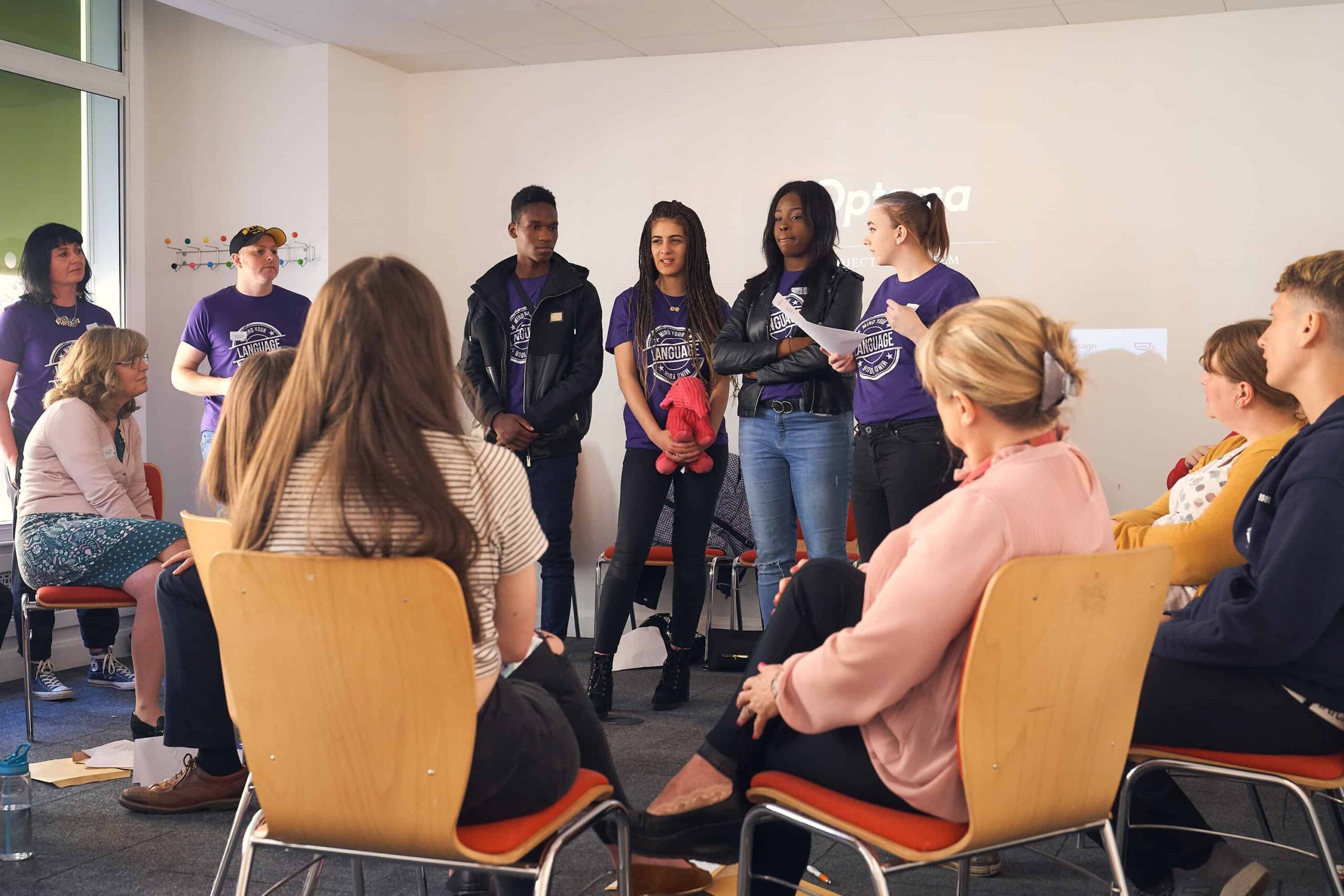Language evolves
The words children and young people hear and the words we use are important. Words can be powerful – they can make us laugh but they can just as easily make us cry. Common words and phrases we previously accepted as normal are changing and, with each new generation so too does language evolve, and new terms begin to enter the mainstream.
VoxCon 2019
At this year’s VoxCon, members of Birmingham’s Children in Care Council (CICC) and Care Leavers Forum (CLF) came and ran a workshop on this hugely important and emotive subject. With the support of Birmingham Children’s Trust, this inspiring group challenged participants to confront the language they use and better understand terminology that is frequently out of touch in 2019 (see more here).
It was clear for all to see that this group of young people are more than any acronyms that might be used to describe them. Their own individual stories demand that we listen carefully so we can begin to help them build a brighter future. As they told the crowd, they are definitely not LAC – as they are not lacking in anything!
Valuable lessons from young people
Research has frequently found that people in positions of privilege rarely face the same social pressure to adapt their language. In order to make progress, it’s important to shine a light on such progressive initiatives such as this. And who knows, with a little introspection and some open and honest dialogue we can all learn a few valuable lessons from young people around us – especially those with care experience.
Lisa Carter, Head of Rights and Participation for Birmingham Children’s Trust said
We are very proud of our children in care council and care leavers forum – they challenge us, they make us incredibly proud, they make us laugh and smile – it’s a privilege to work alongside them everyday.
Top tips
If you too are wondering how you can mind your language, here are some top tips you can take on board in your day to day work:
- Have ongoing and regular discussions with your children and young people and ask which terms they prefer.
- Make a note of them and regularly revisit and update them. Challenge other professionals to use these words.
- Support and enable your children and young people to influence and shape the words you and other professionals use.
Author: Alex Bell, business development team




